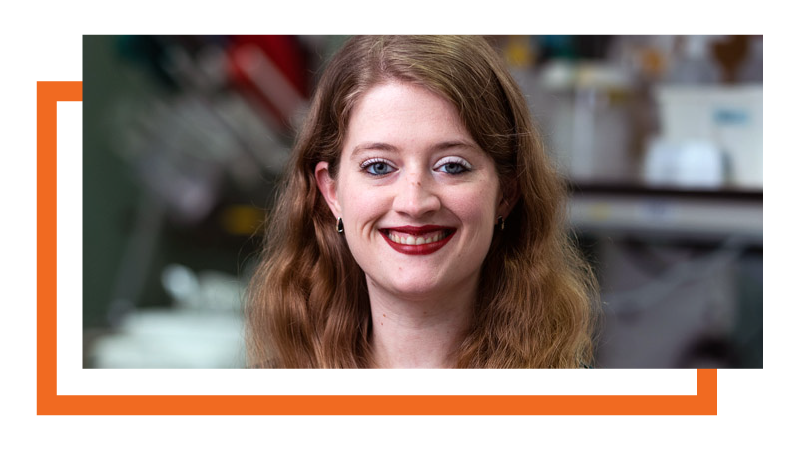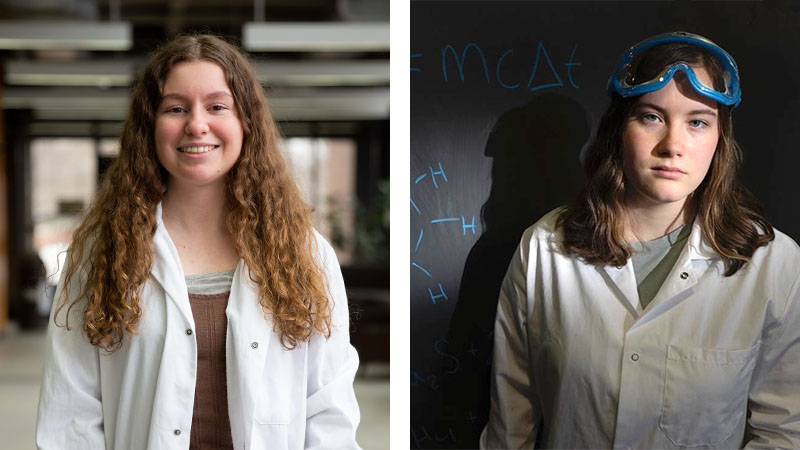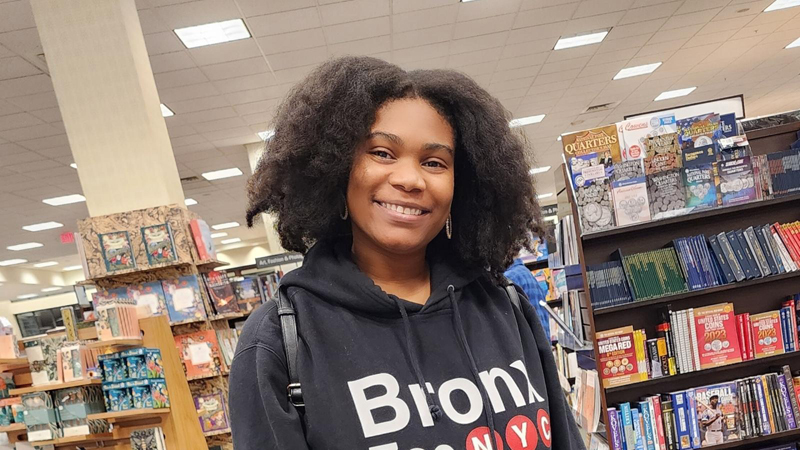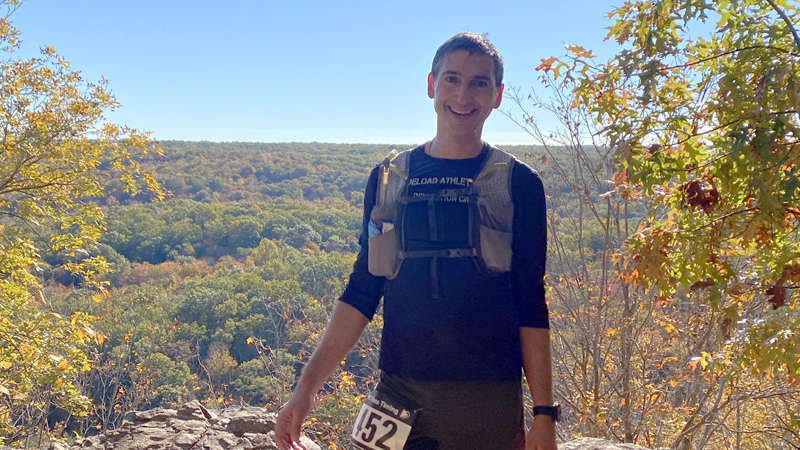Internship in Brazil Builds Research Skills and Connections Abroad
Veronica Fell, a third-year biotechnology student, knew she wanted real-world lab experience and to see the world. A research internship in Brazil allowed her to do that and much more.
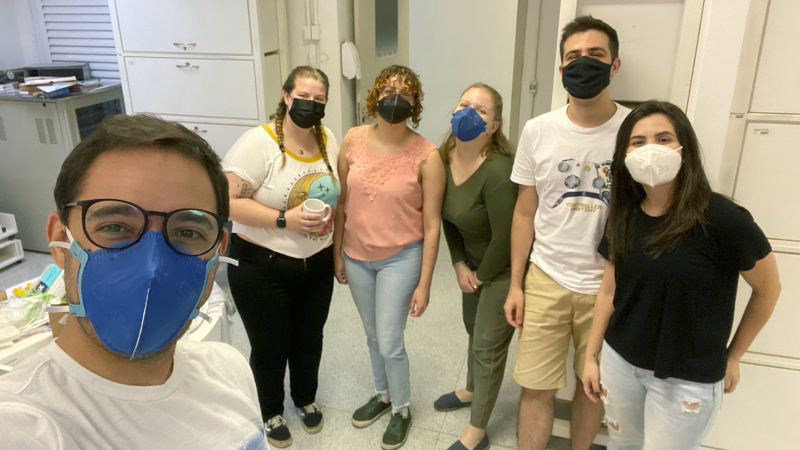
Veronica Fell, a third-year biotechnology student, wanted real-world lab experience and a chance to make connections abroad. This led Veronica to a research internship under Dr. Glaucius Oliva at the University of São Paulo in Brazil, allowing her to do that and much more.
Veronica cited two factors from high school that made her want to pursue a career in science. She recognized there were opportunities in the science field for a high-paying job, and she really enjoyed taking AP chemistry and biology. When it was time to look at colleges, RIT was always at the top of her list. “The first time I visited RIT, it felt like the exact place I wanted to be. It just felt right.”
Veronica put RIT at the top of her list was the opportunity to start research from day one. “I started to reach out about research opportunities during my first semester. I think it's amazing there are so many opportunities for research at RIT. There are many different research fields, and professors are receptive to discussing their research.”
Veronica began a research project with Dr. Jeffrey Lodge on bioremediation before his final semester in the Spring of 2022. While in the lab, she worked with a Ph.D. candidate, Harshal Kansara, from the Sustainability Program at RIT. "I have been assisting Harshal in collecting data on bacteria that can biodegrade plastic tarps used on farms. His project aims to make a spray full of these microbes to spray on the tarps to increase the biodegradation rate."
When the time came to look for summer research opportunities, Veronica reached out to a family member who lives in Brazil to find a connection. Her uncle, who worked at EMS–a leading pharmaceutical company, connected Veronica with a colleague, Dr. Glaucius Oliva. After a Zoom call with Dr. Oliva, Veronica sent him her resume and unofficial transcript. Soon after, Veronica was offered a summer position and worked as a research intern under Dr. Oliva at the University of São Paulo in Brazil for two months.
The lab Veronica worked in was part of the Instituto de Física de São Carlos at the University of São Paulo. Her projects focused on the structural biology of studies for screening against viral enzyme targets of viruses like Zika, Chikungunya, and SARS-CoV-2. “While at the lab, I worked with multiple post-doctorates in their specific research studies. Mainly I was accompanying in purifying multiple Non-Specific-Proteins (NSP). I worked with purifying NSP 7, 8, and 13 from SARS-CoV-2 and NSP 4 from Chikungunya.”
Veronica assisted in various processes to purify the proteins, including running DNA and protein gels, making bacteria transformations, running affinity chromatography columns, working on the AKTA, and working with protein crystals. “I also got a lot of experience making various buffers and solutions and properly cleaning a working laboratory. There was another research lab in our laboratory which focused on antimalarials. I worked with some of the Ph.D. candidate students in this lab, which included running an antimalarial assay and learning to take care of my flask with parasites.”
Veronica believes her internship experience will give her an edge when applying for jobs since it demonstrates to employers that she has the expertise to work in a full-time lab setting. "During my internship, I discovered experiments don't always work and require troubleshooting. For example, I recall one PCR where we could not get the correct band sizes in our bacteria and had to redo the experiment multiple times before the primers finally produced the desired results. Having patience and troubleshooting skills is essential when working with science, and this internship taught me these critical skills."
In addition to learning valuable research and lab skills, Veronica gained perspective on Brazil's science industry and opportunities. "There aren't as many jobs in the science field in Brazil compared to America, which made me value my options to get a job in the biotechnology industry. I also learned about the importance of funding in science to fulfill a research project. After working full time in a lab and talking to Ph.D. candidates, I want to pursue a Ph.D. in microbiology after I graduate from RIT."
Veronica was also able to experience Brazilian culture. "The food in Brazil is amazing, and I even got some recipes to make some of the food at home. While it was initially overwhelming being in a different country, I had many amazing people who helped me along the way." While there was a slight language barrier, Veronica experienced translating science between languages. She also helped her fellow researchers practice their English while learning some Portuguese along the way.
Veronica suggests keeping an open mind for students looking for co-op or internships. “When I first heard about the research in this lab, I wasn’t interested since it’s part of the physics and organic chemistry department. Working in an organic chemistry lab intimidated me since it wasn’t my strongest subject. However, when I talked to the professor and learned the lab was more of a molecular biology project, I decided to move forward with the process. Having this internship was one of the best experiences in my life, and it was all because I decided to keep an open mind during my application process.”
Outside the classroom, Veronica takes advantage of RIT clubs and activities and participates in the RIT Pep Band. “I have played the flute for ten years and am part of RIT's Performing Arts Scholarship program. The program allowed me to continue playing flute, which I didn’t want to give up after high school. I am the flute section leader of the pep band, which is fun and has given me experience in the inner work of the club. I also play at many RIT athletic games such as soccer, hockey, and lacrosse.”
Veronica is also the trap-neuter-release (TNR) coordinator and Eboard member for Caring Hearts for RIT Cats. The club focuses on feeding, reducing, and rescuing the local cat population at RIT and around Rochester. “My role is the trap-neuter-release coordinator. I monitor the cameras at the various feeding stations on and near campus to see which cats have been feeding regularly. This club has given me a lot of leadership experience and more knowledge about stray cat populations and colonies and how to help and keep these cats healthy.”
PHOTO: Pictured from left to right: Igor Moura, Veronica Fell, Camila Barbosa, Giovana Rossi Mendes, Guilherme Bonfim, and Sarah Maluf.





